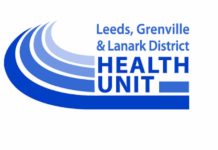by Danielle Labonte, Leeds, Grenville, and Lanark District Health Unit
There are many things to look out for with health-related messaging and misinformation. Be aware of the use of “buzzwords” that lack a clear definition – words like toxins, cleansing, inflammation, immunity, clean eating, and comparing “chemicals” to “natural”. Often, we hear these words being used to describe wellness, when in reality this type of messaging is often vague, over-simplified, and challenging to link to scientific research. This can lead to inaccuracy, misunderstanding, and, sometimes, unreasonable fears.
When looking for health information, consider:
- Are they trying to sell you something?
- Is the research they cite misleading?
- Is it done on humans, or on animals and not replicated in humans?
- Are the claims based on one or two research studies that are not supported by what most research is saying?
- Were the studies peer-reviewed?
- Is it an actual study, or a hypothesis or opinion piece?
- Does the study’s conclusion support the message being shared?
- Is a quick fix or miracle cure being offered?
- Are the author’s credentials appropriate for the information they are providing?
These are often signs that the information may not be credible.
For credible nutrition-related information, Dietitians of Canada and unlockfood.ca are great resources. For physical activity related information, participaction.com is excellent, and ScienceUpFirst.com is a helpful resource for debunking misinformation.
For more information, visit our Health Unit website at healthunit.org, follow us on Facebook and X, or give us a call at 1-800-660-5853.





